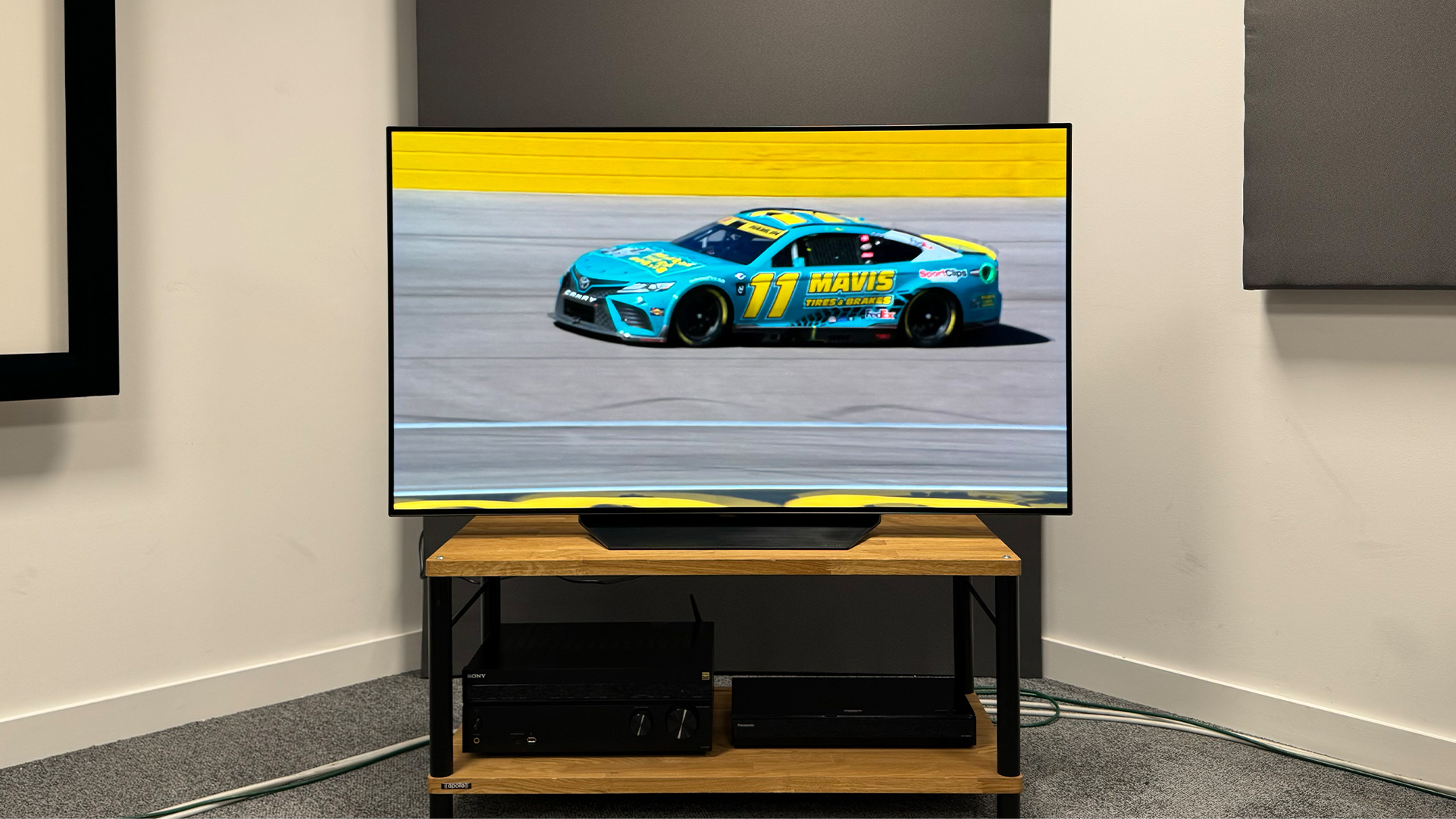
There is a lot of excitement surrounding the launch of the new LG B4, largely because it is the first B-series model that will benefit from having four HDMI 2.1 sockets, making it a viable, cut-price alternative to the C4 for hardcore gamers. But what if you were never in need of those extra HDMI 2.1 sockets? Wouldn’t the existing B3 already be that cut-price LG OLED TV you’ve been waiting for?
In a word, yes. While the B3 does without some of the niceties of its C-series sibling, including those extra full-spec HDMIs and its brighter panel, it’s more than enough OLED TV for most people, and while the price difference isn’t huge, for many people, there’s just no need to pay more.
Price
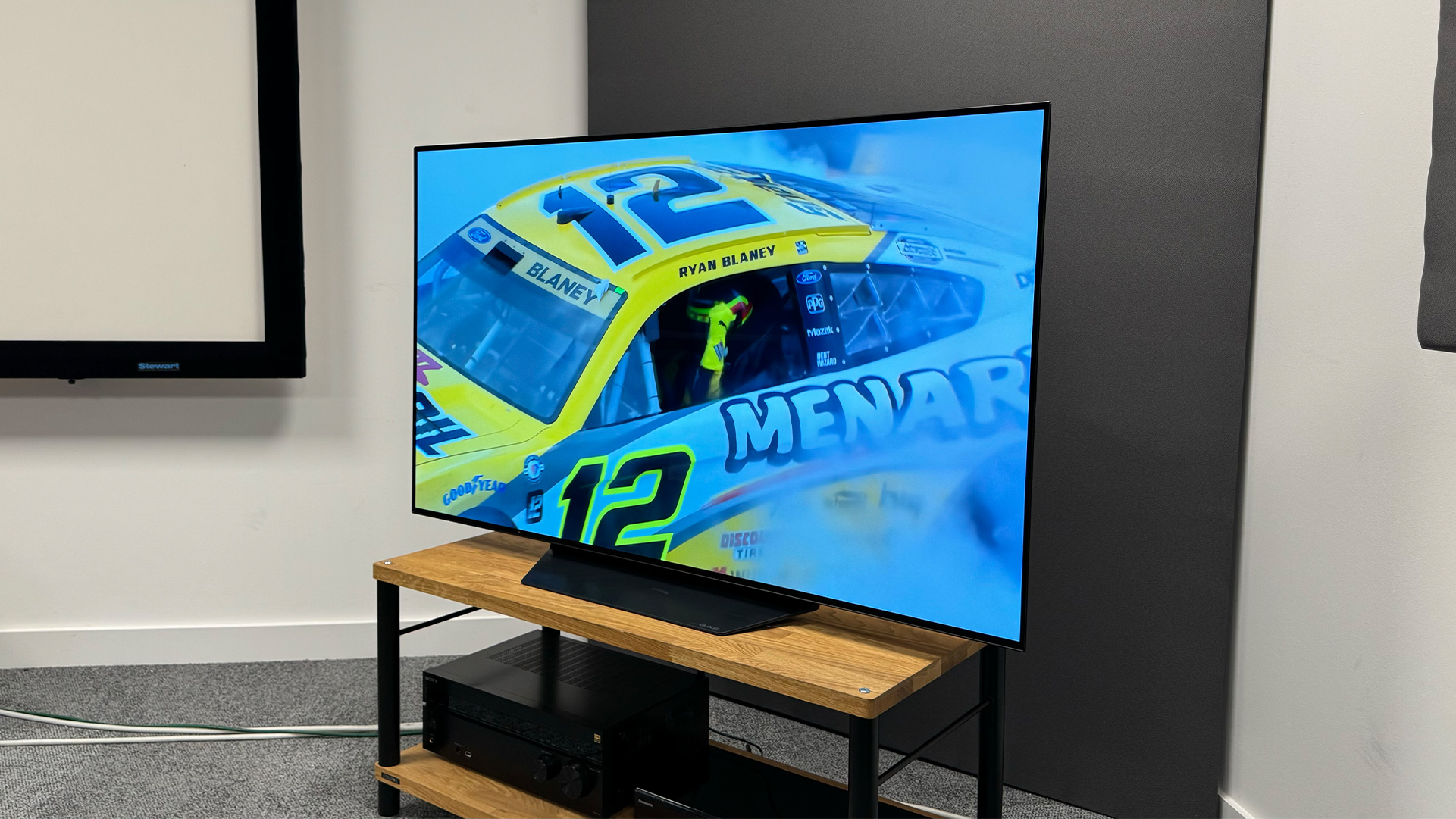
The 55-inch version of the LG B3 on test launched at a price of £1799 / $1699 / AU$3145, but it has come down significantly since then and, in March 2024, you can pick it up for £999 / $1100 / AU$1899. One reason for the very attractive current price is that the B3 is in its end-of-life phase, with the B4 due to arrive in shops imminently. Prices might drop even further in the coming weeks, but bargain-hunters should be aware that stock won’t be around for much longer.
The 55-inch LG C3 is currently priced £1299 / $1300 / AU$2595, so the difference between it and the B3 is a fairly modest £300 / $200 / AU$696. To some, that will seem a discount barely worth having, but others will wonder what the point of spending that extra is when the B3 does everything they need. They might also consider what else that ‘change’ could be spent – a soundbar, perhaps?
If 55 inches isn’t big enough for your needs, the B3 is also available as a 65- and 77-inch model. Alas, it is not available in sizes smaller than 55 inches. The C3 is available in 48-inch and 42-inch sizes, and LG is adding a 48-inch model to this year’s B4.
Design

The main chassis of the B3 looks remarkably similar to that of the C1 of 2021, which means it has a smooth plastic enclosure that covers around half of the panel’s rear, but that the other half is simply a super-slim panel.
The included pedestal stand is narrower than that of C-series models of old, but less compact than that of the C3 and C4. It looks very neat but its thickness and the way that it is angled means that it can’t be straddled by a soundbar. Besides, any soundbar would obscure at least some of the screen anyway, so a third-party TV stand will be all but essential if you are going to go down that route.
Without the stand and viewed from the front, the TV appears to be all screen, with the thin black bezel blending seamlessly with the pure black panel. With the lights off, all you see is your movie or TV show floating in front of you.
To interact with the set, you use a remote that is more or less identical to the ‘Magic Remote’ that comes with the C3 but that lacks the ‘magical’ pointer functionality. To some, that will be a real shame, but to those who don’t get on with said pointer functionality, which can’t be turned off on TVs that support it, it will be a blessing.
Features
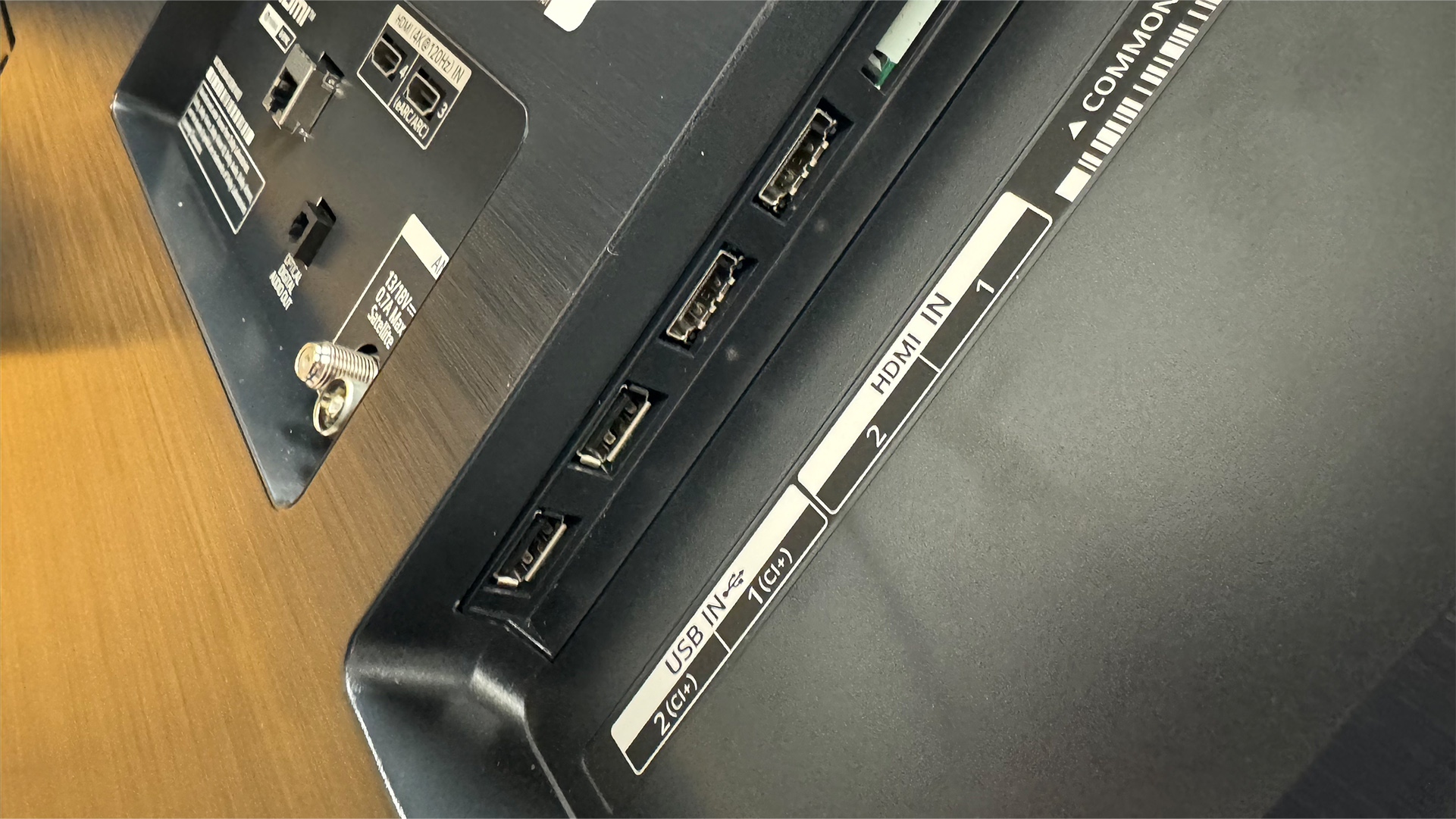
Let’s start with what the B3 doesn’t have that the C3 does. First up, there are just two HDMI 2.1 sockets rather than the C3’s four. One of these 2.1 sockets is also the eARC port, which will be required if you are planning to connect a modern soundbar, AVR or other sound system. That will leave you just one remaining HDMI 2.1 socket, which will be an issue for hardcore gamers who own two or more of the PS5, Xbox Series X and a gaming PC.
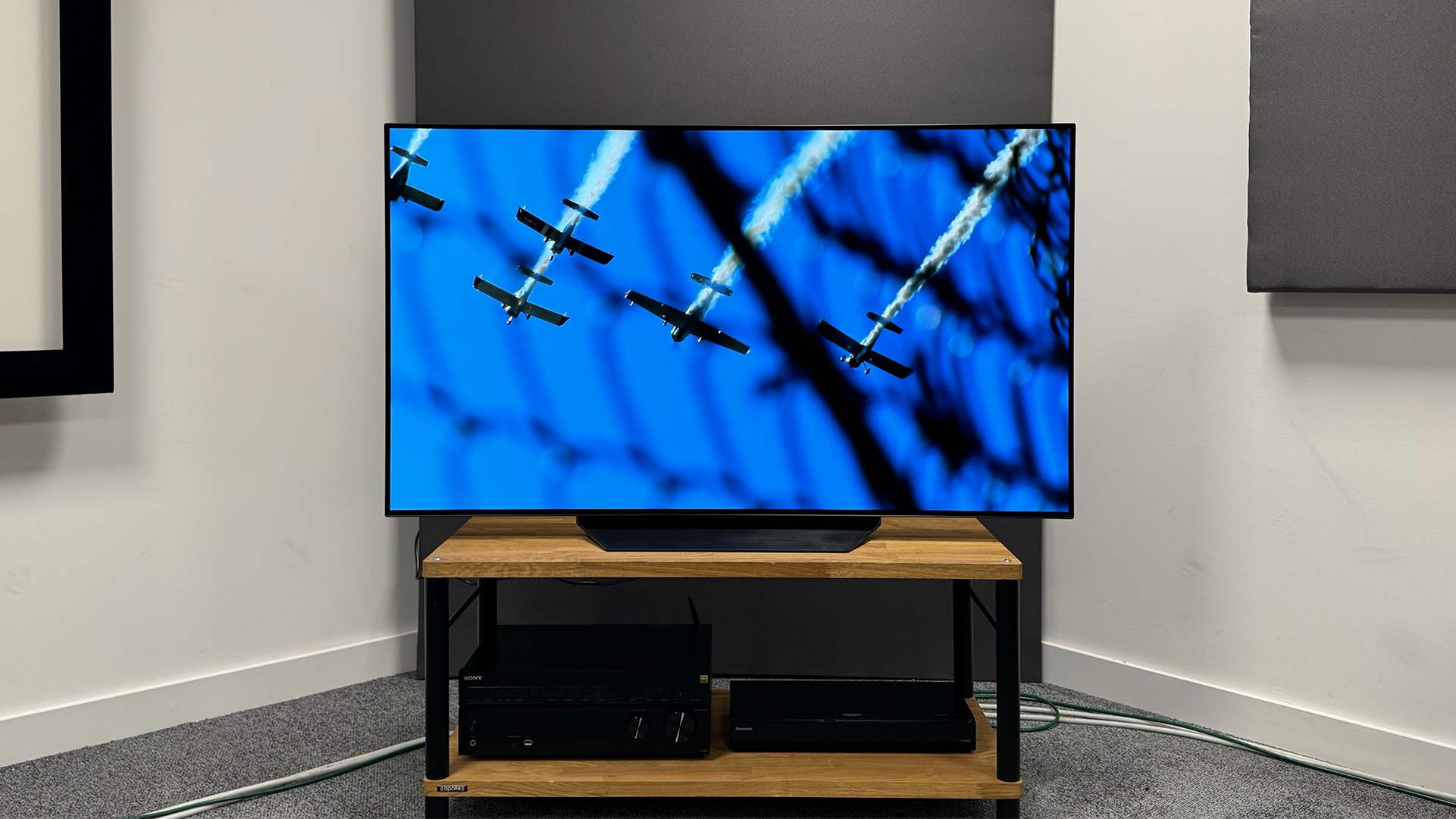
Screen size 55 inches (also available in 65in, 77in)
Type OLED
Backlight N/A
Resolution 4K
HDR formats HLG, HDR10, Dolby Vision
Operating system webOS 23
HDMI inputs x 4 (2 x 48Gbps HDMI 2.1)
Gaming features 4K/120, VRR, ALLM, Dolby Vision game mode, HGiG
ARC/eARC eARC
Optical output? Yes
Dimensions (hwd, without stand) 71 x 123 x 4.7cm
Of course, this is also an issue for the vast majority of other TVs, as only LG and Samsung produce any models with four HDMI 2.1 sockets, and by overall standards the B3 is very well-appointed in terms of gaming features. It supports 4K/120Hz gaming across the two top-spec inputs, and all four of its HDMIs can handle VRR, ALLM and Dolby Vision gaming (right up to 4K/120Hz if you use one of the HDMI 2.1s). LG’s OLEDs also have the best HGiG mode in the business, and the B3 is no different. This makes it very easy to get accurate HDR from the PS5 and Xbox Series X with many games.
The other big difference between the B3 and C3 is that the former isn’t designated an ‘Evo’ model, which means it won’t go as bright. This is down to a number of factors, but primarily the panel. Whether the loss of brightness is an issue for you will depend on what you’re looking for from a TV and what sort of environment you watch it in, but more on that later.
The B3 also features a lesser chip than the one in the C3. The Alpha 7 Gen 6 does without the Alpha 9 Gen 6’s so-called ‘Alpha Reality’ features, so its upscaling and HDR tone-mapping is less advanced. It will be interesting to see how much of an impact this has.
Finally on the list of notable downgrades, the B3 has just a 2.0-channel 20-watt sound system rather than the 2.2-channel 40-watt system of the C3. Considering how sub-par the C3’s sound is, that might set alarm bells ringing, but it’s worth bearing in mind that simpler sound systems can sometimes sound better than more advanced set-ups that try too hard. Besides, a dedicated sound system is an almost essential addition to pretty much any TV, so the B3’s cheaper price might well be more of an advantage than any audio downgrade.
The B3 features the same webOS 23 smart platform as all of its 2023 stablemates. This is very fast (despite the TV’s use of a less fancy processor) and intuitive, with ‘Quick Cards’ (essentially folders) that gather together related apps and features. The only real shame with webOS 23 is that a large portion of the screen is devoted to thinly veiled advertising and that the home page lacks content recommendations, so you have to scroll down to page two (or into a specific app) for movie/TV inspiration. The good news is that the B3, like other webOS 23 TVs, will soon be updated to webOS 24, which refines the UI with a slightly smaller ad banner and a row of recommended content on the home page. It will also add Chromecast to the TV's array of wireless abilities, which already includes AirPlay and regular Bluetooth.
On the apps front, webOS 23 is already extremely well served. Almost every app you could need is there, including the obvious Netflix, Amazon Prime Video and Disney+; localised services such as BBC iPlayer, ITV Hub, Channel 4 and My5 for the UK; music services including Spotify and Tidal; and gaming services such as GeForce Now. Best of all, the Apple TV app is not only present but fully functional, allowing you to directly pay for and stream movies and TV shows from Apple’s peerless ‘iTunes’ catalogue, as well as access content from the Apple TV+ subscription service.
Each of the apps has seemingly been properly optimised for LG’s TVs, so the performance is excellent and every bit of content that should be played in 4K and HDR – whether HDR10, HLG or Dolby Vision – is just that. As is LG’s way, HDR10+ is not supported by the B3 at all. However, while it’s nice to have an OLED TV that supports absolutely every HDR format (such as a Panasonic or Philips), the lack of HDR10+ is barely noticeable.
Picture
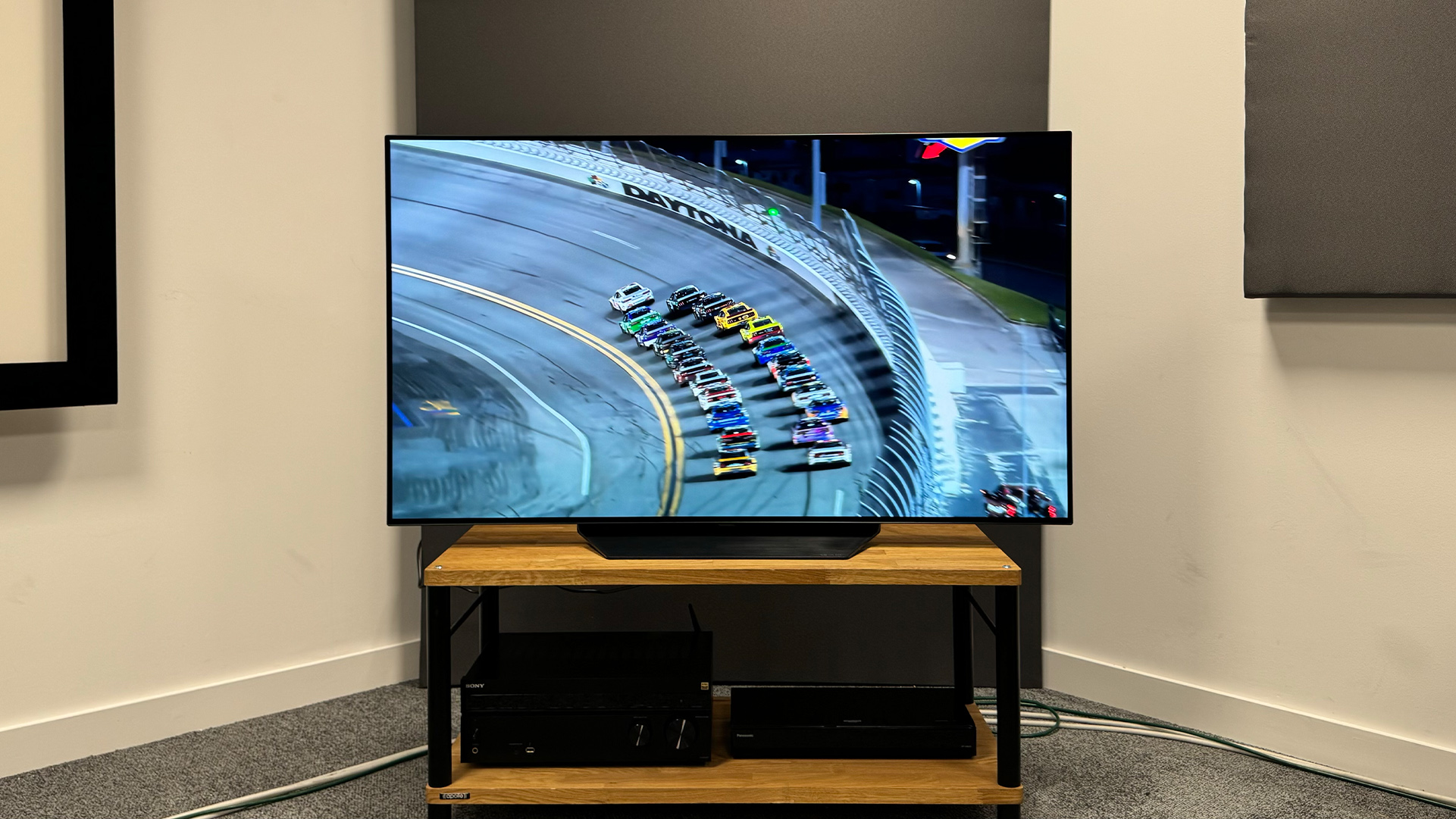
The B3 does most of what makes the C3 superb, so that makes it an excellent TV overall. It’s true that it doesn’t go as bright, but in a dark room the difference isn’t huge, and the B3 delivers excellent punch and impact. This punch is, as ever with an OLED, combined with perfectly inky blacks, with each pixel illuminating (or dimming) independently. This equates to truly awesome contrast and the sort of dynamism that non-OLED sets simply can’t match.
Turn the living room lights on and the B3 is still a very engrossing TV, but when there’s excessive ambient light in the room its impact is lessened somewhat. Despite the panel having good reflection-reducing properties, its relatively limited brightness means even HDR struggles to punch through. That isn’t to say that the set is unwatchable when there’s sunlight pouring in through the windows – just that its images lack the level of intensity that a brighter alternative can hit in such conditions.
This is really the B3’s only deficiency, though, and in most conditions it’s nothing less than delightful. Colours are rich and vibrant but authentically balanced as long as you’re watching Dolby Vision or stick to the set’s more accurate picture presets, such as Cinema or Filmmaker Mode. There’s also an excellent balance between black depth and shadow detail, so images are both rich and insightful.
Like the C3, the B3 lacks the razor-edged crispness of a set such as the Sony A80L, but it's still plenty sharp enough in its own right, producing images with plenty of solidity and inviting depth. Detail levels are high, too, and throughout there’s no sense of the artificial enhancement that some sets give you.
LG’s motion handling is very good at this point, and in its least aggressive TruMotion modes, the B3 successfully reduces judder without adding fizzing or artificiality. Sony’s top TVs still manage to go even smoother while keeping everything looking natural, but the B3 isn’t far behind.
There will be plenty of times when you’ll be watching something in sub-4K quality, and the B3 does a good job with this sort of content, too. It’s not quite as good at smoothing the rough edges of 1080p and standard-def as the C3, but the difference is marginal, particularly at a typical living room viewing distance, and the overall delivery from Full HD and standard-def streams and broadcasts is satisfyingly smooth.
Sound
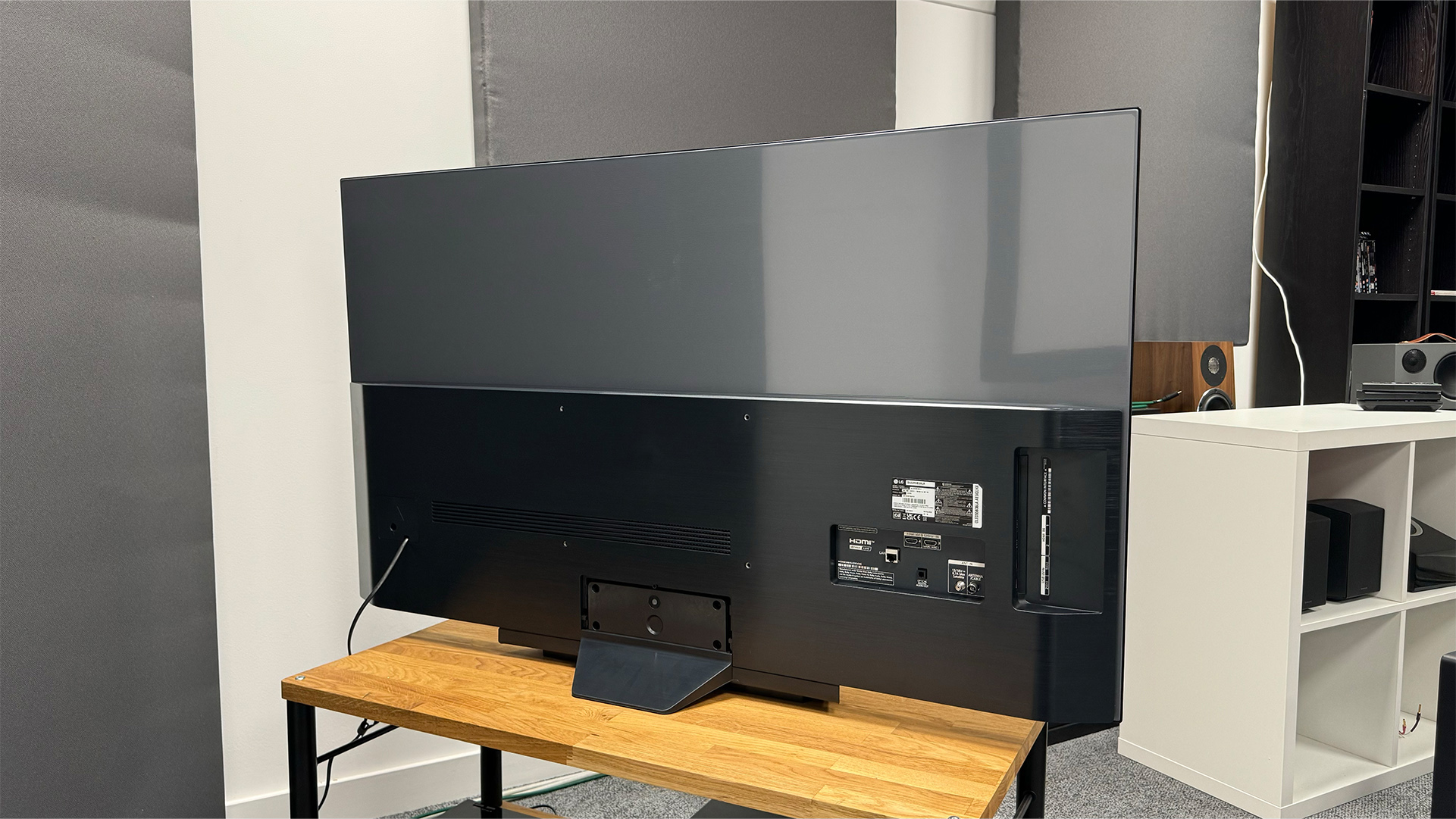
LG’s 2023 TVs have been disappointing in the sound department, primarily on account of a lack of punch and dynamic range, which results in a rather dull delivery. The B3’s relatively low-power sound system predictably doesn’t solve these issues, but it doesn’t make them much worse, either.
If you are watching daytime TV you’ll have very few complaints – clarity is good, voices are projected fairly well, and there are no hard edges to the delivery. But for movie night, it just doesn’t cut the mustard. That lack of impact and dynamics robs soundtracks of pretty much all of their emotive qualities, which will leave first-timers wondering what all of the fuss is about when watching a movie with an impeccable, integral score, such as Oppenheimer or Blade Runner 2049.
The solution, as ever, is to combine the TV with a dedicated sound system. A cheap soundbar such as the Sonos Ray will provide a significant upgrade, but the Sonos Beam is a more appropriate affordable option.
Verdict

The LG B3 does most of what makes the C3 great, and that makes it an excellent TV. It’s not cheaper by a huge degree, but unless you absolutely must have four HDMI 2.1 sockets or you regularly watch TV in a very bright room (and expect a very high level of performance in such conditions), there’s every reason to buy the B3 and pocket the change – or, preferably, put it towards the purchase of a soundbar.
SCORES
- Picture 5
- Sound 3
- Features 4
MORE:
Read our review of the LG C3
Also consider the Sony A80L
Read our TCL C845K review
Best 55-inch TVs: 4K HDR OLED, Mini LED and LCD sets, tried and tested







